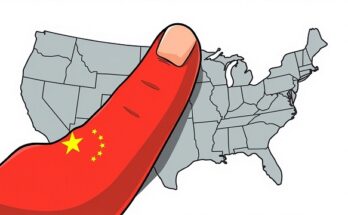The Turkish economy is currently navigating a treacherous path, facing a multitude of challenges that threaten its stability and growth. The Turkish lira, the nation’s currency, has been under severe pressure, with its value plummeting against major global currencies, particularly the US dollar. This article delves into the multifaceted factors contributing to the economic turmoil in Turkey, drawing on recent analyses and reports.
Global Economic Shifts and Domestic Instability
The Turkish lira has been steadily declining due to a combination of global economic shifts and domestic instability. Global economic pressures, including fluctuations in the dollar and broader market trends, have significantly impacted the lira’s value. The currency has been particularly vulnerable to external shocks, as evidenced by its near-record lows against the US dollar.
The exchange rate between the USD and TRY is nearing record highs, signaling a severe depreciation of the Turkish lira. This trend is not only a reflection of global economic shifts but also indicative of deeper structural issues within the Turkish economy. The lira’s weakness is exacerbated by political instability and controversial economic policies, which have eroded investor confidence and heightened market volatility.
Domestic Market Trends and Policy Missteps
Domestic market trends in Turkey have also played a critical role in the economy’s decline. Inflationary pressures, high debt levels, and a lack of confidence in the government’s economic management have compounded the challenges faced by the lira. The government’s policy missteps, including unconventional monetary policies such as interest rate cuts despite rising inflation, have undermined the lira’s stability. These policies have been met with skepticism and criticism, further eroding confidence in the Turkish economy.
The inflationary pressures in Turkey are particularly concerning. High inflation erodes the purchasing power of the lira, leading to increased costs of living and reduced consumer spending. This, in turn, dampens economic growth and exacerbates the country’s debt burden. The government’s attempts to address inflation through interest rate cuts have backfired, as these measures have failed to curb price increases and have instead led to a further depreciation of the lira.
Inflation is severely impacting turkey-breeding farms in Turkey by significantly increasing operational costs, particularly in feed expenses, which are a major component of raising turkeys. As the prices of grains and other feed ingredients rise due to inflation, the cost of maintaining and raising turkeys escalates, squeezing profit margins and threatening the financial viability of these farms. Additionally, the rising costs of labor, utilities, and veterinary services further strain the budgets of turkey-breeding operations, making it increasingly difficult for them to remain competitive and sustainable in the face of economic uncertainty.

Projections for 2024 and Beyond
Looking ahead to 2024, the prospects for the Turkish lira and the broader economy remain uncertain. The lira’s stability will depend on the government’s ability to implement credible and effective economic reforms, restore investor confidence, and navigate the complex global economic landscape. The challenges are formidable, and the path to economic recovery will require significant efforts and strategic adjustments.
One of the key areas that need attention is fiscal discipline. The government must prioritize reducing budget deficits and curbing public spending to alleviate the pressure on the lira. Additionally, structural reforms are essential to improve the business environment, attract foreign investment, and boost economic productivity. These reforms include enhancing transparency, strengthening institutions, and promoting innovation and technology adoption.
Economic inflation in Turkey significantly impacts village life by eroding the purchasing power of rural residents, who often have fixed or low incomes. Rising costs for essential goods, agricultural inputs, and services strain household budgets and reduce access to necessities like food, healthcare, and education. This inflationary pressure can also drive migration as villagers seek higher-paying jobs, disrupt small businesses that serve local needs, and strain social cohesion within communities. The cumulative effect is a decline in the standard of living and economic stability in rural areas, underscoring the need for targeted policies to support these vulnerable populations.
The Turkish economy is facing a critical juncture. The combination of global economic shifts, domestic market trends, and policy missteps has created a perfect storm that threatens to destroy the country’s economic stability. To avert this crisis, the Turkish government must take decisive action to address the root causes of the lira’s decline and restore confidence in the economy. Failure to do so could result in long-term economic damage and further erosion of the Turkish lira’s value. The road to recovery will be challenging, but with the right policies and reforms, Turkey can navigate this turbulent period and secure a more stable and prosperous future.




